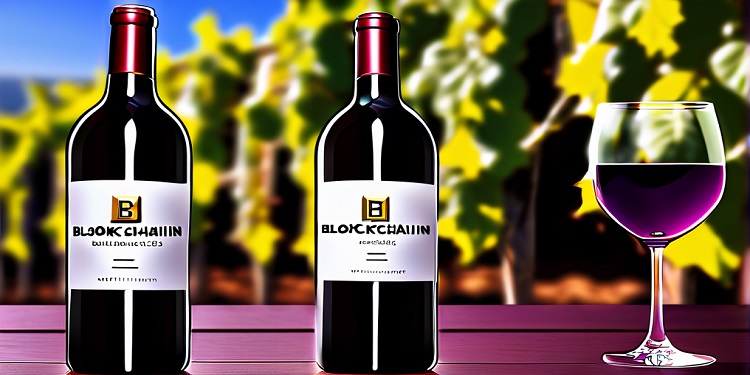As the luxury wine market evolves, technology is playing an increasingly crucial role in transforming how rare and high-end wines are traded and managed. The integration of blockchain technology into this traditionally fragmented industry is now being seen as a potential solution to longstanding inefficiencies.
In a recent discussion on The Wolf of All Streets podcast, Scott Melker spoke with David Garrett, Co-founder of dVin, about the impact of blockchain on the wine industry. Their conversation explored how decentralized technology can address some of the challenges small wineries face and bring greater transparency and efficiency to the global wine market.
Current Challenges in the Wine Industry
David Garrett highlighted the fact that the wine market operates largely as a decentralized industry, with around 30,000 wineries worldwide. He emphasized that most small winemakers still rely on outdated methods to manage their inventory and sales, often using paper-based systems. This lack of modern data management tools creates significant barriers for wineries when it comes to customer acquisition and business expansion.
Garrett suggested that blockchain technology could play a pivotal role in overcoming these challenges by improving data flow between winemakers and their customers. The ability to track and verify information about wine products through decentralized networks would provide greater transparency for consumers, while also offering small wineries more efficient ways to manage their operations.
Streamlining Wine Transactions with Blockchain
While the wine industry is already highly decentralized in terms of its structure, Scott Melker noted the irony in applying blockchain, a decentralizing technology, to such an industry. Garrett, however, pointed out that blockchain offers significant advantages, particularly in international wine transactions. He explained that small-scale wine deals often face high bank fees and extended settlement times, which can hinder business operations.
Garrett described blockchain as an ideal solution for streamlining these transactions. By utilizing smart contracts, decentralized technology could facilitate faster and more cost-effective international wine sales, reducing the friction associated with traditional banking systems. The implementation of blockchain would make it easier for winemakers to sell their products globally while minimizing transaction costs and delays.
Integrating Blockchain Without Disrupting Existing Systems
One of the main goals of dVin, according to Garrett, is to introduce blockchain technology into the wine industry without overwhelming wineries with complex digital systems. To achieve this, dVin has partnered with Deloitte Winery Solutions, a major service provider for the wine industry. This collaboration enables dVin to integrate blockchain with existing winery systems, ensuring that winemakers can benefit from the technology without having to adopt entirely new processes.
Garrett explained that the focus is on simplifying the user experience for winemakers. Through the partnership with Deloitte, dVin is able to offer digital transaction solutions that operate in the background. This allows wineries to conduct business more efficiently without even realizing they are using cryptocurrency or blockchain technology. The goal is to enhance operational efficiency while maintaining ease of use for wineries, ensuring a smooth transition to more modern systems.
Enhancing Security and Efficiency in the Global Wine Market
The introduction of blockchain technology into the luxury wine market brings with it the promise of enhanced security and efficiency. By enabling secure, transparent transactions, decentralized technology can help winemakers protect their products and streamline their sales processes. This is particularly important for the high-end wine sector, where provenance and authenticity are critical factors for consumers.
As dVin continues to work closely with key industry players like Deloitte, the integration of blockchain into the wine market is expected to bring significant benefits to both winemakers and consumers. From reducing transaction fees to ensuring the authenticity of luxury wines, blockchain has the potential to revolutionize the way the global wine market operates.
In conclusion, the use of blockchain technology in the luxury wine market represents a significant step forward in modernizing an industry that has long relied on traditional methods. By addressing inefficiencies in international transactions and providing winemakers with better tools for managing their business, blockchain could help the wine industry achieve greater transparency, security, and operational efficiency. As more wineries adopt this technology, the future of the luxury wine market looks increasingly promising.
